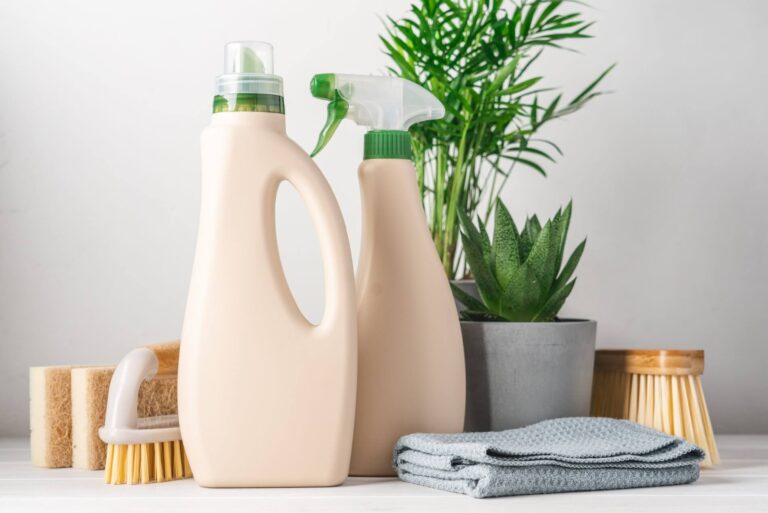
Mental well-being plays a crucial role in our overall health and happiness. With our busy lives and endless responsibilities, finding ways to improve our mental health is essential. One often overlooked method is cleaning and organizing our living spaces. In this article, we’ll explore the connection between cleaning and mental health and how maintaining a tidy home can lead to reduced stress, better focus, and a greater sense of satisfaction.
How cleaning reduces stress and anxiety
You may not realize it, but clutter has a direct link to stress and anxiety. A messy environment can make us feel overwhelmed and anxious, as our brains struggle to process the excess of stimuli. By decluttering and organizing our surroundings, we can create a more serene, calming atmosphere that helps reduce anxiety.
The science behind clutter and stress
Our brains are wired to prefer order and organization. When we’re surrounded by clutter, it becomes difficult for our brains to filter out unnecessary information, leading to feelings of stress and anxiety. Additionally, the visual chaos of a cluttered space can trigger the release of cortisol, a stress hormone, which can negatively affect our mood and overall well-being.
How decluttering can help
By decluttering our living spaces, we can create a more organized and visually appealing environment, reducing the mental burden caused by clutter. This, in turn, can help alleviate stress and anxiety, improving our overall mental health. Plus, the physical act of cleaning can be therapeutic, offering a productive way to channel our energy and focus on something tangible.
Studies supporting the connection
Numerous studies support the connection between decluttering and reduced anxiety. For example, a study from UCLA’s Center on Everyday Lives of Families found that women who described their homes as cluttered experienced higher levels of stress and depression. Another study published in the Journal of Environmental Psychology found that individuals who described their homes as “cluttered” or “unfinished” had increased levels of the stress hormone cortisol and reported feeling more fatigued and depressed than those who described their homes as “restful” and “restorative.”
How cleaning improves focus and productivity
A clean, organized environment can have a significant impact on our ability to focus and be productive. When our surroundings are messy, our minds can become easily distracted, making it difficult to concentrate on tasks at hand. By keeping our homes clean and clutter-free, we can create an environment that promotes focus and productivity.
The impact of a clean environment on focus
Our brains are constantly processing information from our surroundings. In a cluttered environment, our brains have to work harder to filter out irrelevant stimuli, which can hinder our ability to focus. A clean, organized space, on the other hand, reduces the amount of visual clutter and allows our brains to focus more efficiently on the task at hand.
Cleaning as a productivity booster
Cleaning not only creates a more conducive environment for focus and productivity, but it can also serve as a mental reset. Taking a break from work or other responsibilities to engage in cleaning tasks can help clear our minds and renew our focus when we return to our tasks. Additionally, a clean and organized workspace can help us feel more in control and motivated to complete tasks.
Studies supporting the connection
Research supports the idea that a clean, organized environment promotes focus and productivity. A study from Princeton University found that people in a clean, organized environment were better able to focus and process information than those in a cluttered space. Another study published in the Journal of Neuroscience found that individuals working in a clean, organized workspace were more likely to make healthier choices and be more productive than those working in a cluttered environment.
How cleaning leads to a sense of accomplishment and satisfaction
Completing cleaning tasks not only leaves our homes looking better but also provides us with a sense of accomplishment and satisfaction. This feeling of achievement can boost our self-esteem and overall well-being.
Cleaning as a form of achievement
When we complete a cleaning task, we can see the tangible results of our efforts, providing a sense of accomplishment. This feeling of achievement can be rewarding and motivating, encouraging us to continue maintaining a clean and organized environment.
How a sense of accomplishment benefits mental health
A sense of accomplishment can improve our self-esteem and overall mental well-being. When we feel good about our achievements, it can create a positive feedback loop, encouraging us to continue engaging in activities that make us feel successful and fulfilled.
Studies supporting the connection
A study published in the Personality and Social Psychology Bulletin found that people who engaged in daily cleaning activities reported higher levels of happiness and well-being. Another study published in the Journal of Environmental Psychology found that individuals who perceived their homes as clean and organized reported higher levels of psychological well-being than those who perceived their homes as cluttered and disorganized.
How cleaning improves physical health
In addition to its mental health benefits, cleaning can also improve our physical health. A clean home can reduce allergens, such as dust and pet dander, which can trigger allergies and asthma symptoms. Regular cleaning also helps prevent the growth of mold and mildew, which can cause respiratory issues and other health problems.
Reducing allergens and improving air quality

Regular cleaning can help remove dust, pet dander, and other allergens from our living spaces, improving air quality and reducing allergy symptoms. Additionally, a clean home is less likely to harbor mold and mildew, which can cause respiratory issues and other health problems.
Cleaning as a form of physical activity
Cleaning can also serve as a form of physical activity, helping us stay active and maintain a healthy lifestyle. Engaging in regular cleaning tasks can help us burn calories, improve our cardiovascular health, and increase our overall fitness levels.
Studies supporting the connection
A study from Indiana University found that people who kept their homes clean were more likely to be physically active and have better overall health than those with messy homes. Another study published in the Journal of Physical Activity and Health found that individuals who engaged in regular cleaning activities had a lower risk of developing chronic diseases, such as heart disease and obesity, compared to those who did not engage in regular cleaning activities.
Conclusion
The benefits of regular cleaning on mental health cannot be ignored. By reducing stress and anxiety, improving focus and productivity, and boosting our sense of accomplishment and self-esteem, maintaining a clean home can significantly impact our mental well-being. Furthermore, cleaning can also improve our physical health, contributing to a healthier lifestyle.
We encourage you to incorporate cleaning into your daily routine and experience the transformative effects it can have on your mental health and overall quality of life. Remember, a clean home is a happy home, and it’s never too late to start taking care of your mental health through cleaning.


